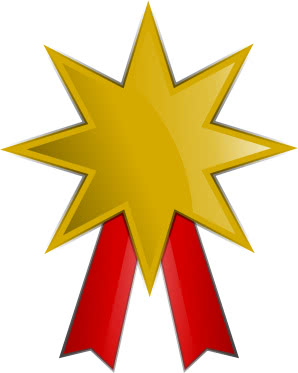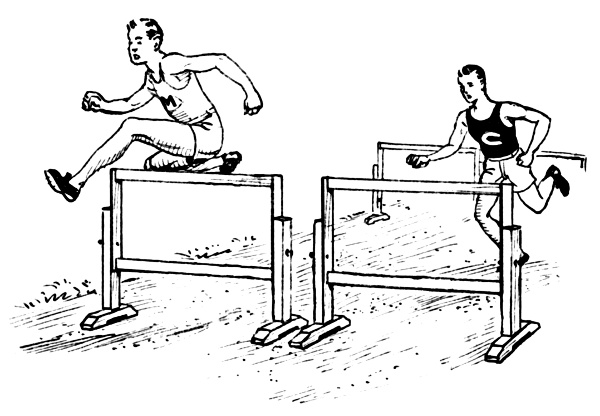 Alibaba.com’s (HKEx: 1688) new announcement that it may spin off HiChina, its Internet infrastructure service provider that it acquired just 2 years ago, has all the signs of valuation envy from an industry leader that feels unappreciated by investors. (English article) That’s the only reason I can give for the strange timing of this announcement, coming at the height of one of the worst IPO markets in the last 2 years and at a time when US-listed China companies are particularly out of favor. Let’s look at the numbers: Alibaba.com, easily China’s biggest B2B e-commerce site, purchased HiChina in 2009 for a price that gave it a valuation at that time of around $100 million. Now, an unnamed source being quoted by the Wall Street Journal is saying the IPO could value the company at up to $500 million, or 5 times what Alibaba.com paid for it. I’m sure Alibaba has brought some synergies to the company since the purchase and also invested more money in it, but a 400 percent increase in value in just 2 years seems a bit too rich to me. More likely, Alibaba.com is feeling underappreciated by investors, who have dumped its shares in recent months causing it to lose nearly half its value since July, with a current market cap of around $4 billion. That’s easily the lowest market cap for any category leader in China’s Internet space. Leading web portal Sina (Nasdaq: SINA) has a current market cap of $5.4 billion, while Baidu (Nasdaq: BIDU) and Tencent (HKEx: 700), the leading search engine and online game operator, boast sky-high valuations of $43 billion and $37 billion, respectively. Alibaba.com’s parent company, Alibaba Group, is also no doubt feeling some pressure to show stronger valuations from its units after investors purchased a stake in the parent company last week that valued it at a whopping $32 billion. (previous post) Considering that Alibaba.com is probably the parent group’s most valuable asset and worth just $4 billion, I’m not sure where the other $28 billion of that sky-high valuation is coming from. All that said, this HiChina spin-off plan looks like mostly a distraction to divert attention away from Alibaba’s industry-lagging valuations.
Alibaba.com’s (HKEx: 1688) new announcement that it may spin off HiChina, its Internet infrastructure service provider that it acquired just 2 years ago, has all the signs of valuation envy from an industry leader that feels unappreciated by investors. (English article) That’s the only reason I can give for the strange timing of this announcement, coming at the height of one of the worst IPO markets in the last 2 years and at a time when US-listed China companies are particularly out of favor. Let’s look at the numbers: Alibaba.com, easily China’s biggest B2B e-commerce site, purchased HiChina in 2009 for a price that gave it a valuation at that time of around $100 million. Now, an unnamed source being quoted by the Wall Street Journal is saying the IPO could value the company at up to $500 million, or 5 times what Alibaba.com paid for it. I’m sure Alibaba has brought some synergies to the company since the purchase and also invested more money in it, but a 400 percent increase in value in just 2 years seems a bit too rich to me. More likely, Alibaba.com is feeling underappreciated by investors, who have dumped its shares in recent months causing it to lose nearly half its value since July, with a current market cap of around $4 billion. That’s easily the lowest market cap for any category leader in China’s Internet space. Leading web portal Sina (Nasdaq: SINA) has a current market cap of $5.4 billion, while Baidu (Nasdaq: BIDU) and Tencent (HKEx: 700), the leading search engine and online game operator, boast sky-high valuations of $43 billion and $37 billion, respectively. Alibaba.com’s parent company, Alibaba Group, is also no doubt feeling some pressure to show stronger valuations from its units after investors purchased a stake in the parent company last week that valued it at a whopping $32 billion. (previous post) Considering that Alibaba.com is probably the parent group’s most valuable asset and worth just $4 billion, I’m not sure where the other $28 billion of that sky-high valuation is coming from. All that said, this HiChina spin-off plan looks like mostly a distraction to divert attention away from Alibaba’s industry-lagging valuations.
Bottom line: Alibaba.com’s plan to spin off its HiChina infrastructure services unit is a ploy to generate excitement to boost its own industry-trailing valuation.
阿里巴巴网络有限公司(Alibaba.com)(1688.HK)日前发布公告称,公司拟分拆两年前收购的互联网基础设施服务提供商万网(HiChina),後者将赴美上市,其估值颇令人眼红。这是我能想到此时发布公告的唯一原因。目前是两年来首次公开募股(IPO)市场最糟时刻之一,赴美上市的中国企业尤其不受投资者青睐。让我们来看看相关数据。Alibaba.com是中国最大的B2B电子商务网站,2009年以5.4亿元收购万网股权。《华尔街日报》援引一名消息人士的说法称,万网上市时的市值或高达5亿美元,是阿里巴巴网络收购价的五倍。我相信,收购万网後,阿里巴巴为其带来了一些协同效应,也对其投入了更多资金,但仅两年价值就增长4倍,我认为,这样的涨幅有点过高。更可能的情况是,阿里巴巴网络觉得不被投资者看好。投资者近几个月抛售其股票,致使该公司市值自7月来缩水近一半,目前约为40亿美元。在中国互联网领域,对于一个领军企业来说,这样的市值非常低。门户网站新浪(SINA.O)目前市值为54亿美元,百度(BIDU.O)及腾讯(0700.HK)的市值分别为430亿美元和370亿美元。阿里巴巴网络母公司–阿里巴巴集团也面临压力。多家投资机构上周投资阿里巴巴集团,促使其市值高达320亿美元。考虑到阿里巴巴网络可能是该集团最有价值的资产,但其市值仅为40亿美元,我不知道阿里巴巴集团高得离谱的市值从何而来。总而言之,分拆万网的计划看似多半是为了转移投资者对阿里巴巴网络估值的关注。
一句话:阿里巴巴网络有限公司计划分拆万网,目的是为了提升公司落後于行业的估值。
Related postings 相关文章:
◙ More Internet Froth in Alibaba Valuation, Dangdang Price War 阿里巴巴估值奇高凸显网络泡沫

 Despite facing a sharp slowdown in the domestic auto market, foreign car makers are showing no signs of slowing down their investment in China — a trend that looks worrisome for big domestic names that are no doubt being forced to curb spending. In the latest development on that front, Chinese media are reporting that Germany’s Volkswagen (Frankfurt: VOWG), China’s largest auto brand with 13 percent of the market, has decided to boost its already sizable investment plan for China, now aiming to spend $19 billion from 2012 to 2016 from a previous target of $14.3 billion from 2011 to 2015. (
Despite facing a sharp slowdown in the domestic auto market, foreign car makers are showing no signs of slowing down their investment in China — a trend that looks worrisome for big domestic names that are no doubt being forced to curb spending. In the latest development on that front, Chinese media are reporting that Germany’s Volkswagen (Frankfurt: VOWG), China’s largest auto brand with 13 percent of the market, has decided to boost its already sizable investment plan for China, now aiming to spend $19 billion from 2012 to 2016 from a previous target of $14.3 billion from 2011 to 2015. ( Despite one of the worst IPO markets in the last 2 years, we’re seeing a sudden spurt of major Chinese state-run firms suddenly rush to make new listings in Shanghai and Hong Kong, in what looks like a behind-the-scenes campaign by Beijing to try and halt a recent skid in its stock markets. In the latest development of this new mega-IPO parade, Sinohydra Group, the nation’s biggest hydropower company and builder of the 3 Gorges Dam, is planning to raise $2.6 billion in a Shanghai IPO (
Despite one of the worst IPO markets in the last 2 years, we’re seeing a sudden spurt of major Chinese state-run firms suddenly rush to make new listings in Shanghai and Hong Kong, in what looks like a behind-the-scenes campaign by Beijing to try and halt a recent skid in its stock markets. In the latest development of this new mega-IPO parade, Sinohydra Group, the nation’s biggest hydropower company and builder of the 3 Gorges Dam, is planning to raise $2.6 billion in a Shanghai IPO ( There’s some interesting data out from LDK Solar (NYSE: LDK), the weakest of the major solar firms, that seems to show the sputtering sector may still have some energy left, even as it grapples with its worst-ever downturn. According to a new
There’s some interesting data out from LDK Solar (NYSE: LDK), the weakest of the major solar firms, that seems to show the sputtering sector may still have some energy left, even as it grapples with its worst-ever downturn. According to a new  The latest signs of froth in China’s bulging Internet bubble are popping up in several places this week, with new investors in e-commerce leader Alibaba Group boasting a ridiculously high valuation for the company, while the latest price war by Dangdang (NYSE: DANG) underscores the overheated competition. And in perhaps the most revealing of the new developments, even state-owned dinosaur CCTV is jumping on the e-commerce bandwagon, with the launch of its CNTV Mall. (
The latest signs of froth in China’s bulging Internet bubble are popping up in several places this week, with new investors in e-commerce leader Alibaba Group boasting a ridiculously high valuation for the company, while the latest price war by Dangdang (NYSE: DANG) underscores the overheated competition. And in perhaps the most revealing of the new developments, even state-owned dinosaur CCTV is jumping on the e-commerce bandwagon, with the launch of its CNTV Mall. ( Despite receiving numerous advantages from Beijing in China’s fledgling 3G market, China Unicom (HKEx: 762; HKEx: CHU) has shown disappointingly slow progress in boosting its share in the space and now we may know why: a shortage of low-cost handsets. That’s what domestic media are reporting, with Unicom preparing to buy up to 8 million smartphones costing under 1,000 yuan, or about $150 each, in a bid to boost its share in the market. (
Despite receiving numerous advantages from Beijing in China’s fledgling 3G market, China Unicom (HKEx: 762; HKEx: CHU) has shown disappointingly slow progress in boosting its share in the space and now we may know why: a shortage of low-cost handsets. That’s what domestic media are reporting, with Unicom preparing to buy up to 8 million smartphones costing under 1,000 yuan, or about $150 each, in a bid to boost its share in the market. ( There’s been a flurry of news on the electric vehicle (EV) front these last 2 days, as China enlists US heavyweights General Motors (NYSE: GM) and General Electric (NYSE: GE) to try and jumpstart the country’s sputtering drive to environmentally friendly cars. But despite the hype, the two latest initiatives look largely symbolic to me, and it’s hard to tell if either will have much impact. One deal will see GM and Chinese partner SAIC (Shanghai: 600104) step up their EV development, with GM making vague promises to transfer more of its cutting-edge EV technology to China as it prepares to import its state-of-the-art Chevy Volt on a trial basis. (
There’s been a flurry of news on the electric vehicle (EV) front these last 2 days, as China enlists US heavyweights General Motors (NYSE: GM) and General Electric (NYSE: GE) to try and jumpstart the country’s sputtering drive to environmentally friendly cars. But despite the hype, the two latest initiatives look largely symbolic to me, and it’s hard to tell if either will have much impact. One deal will see GM and Chinese partner SAIC (Shanghai: 600104) step up their EV development, with GM making vague promises to transfer more of its cutting-edge EV technology to China as it prepares to import its state-of-the-art Chevy Volt on a trial basis. ( The folks at Lenovo (HKEx: 992) are surely celebrating, after the latest numbers showed it zoomed past sputtering Taiwanese PC maker Acer (Taipei: 2353) to take the spot as the world’s third largest PC seller in the second quarter. (
The folks at Lenovo (HKEx: 992) are surely celebrating, after the latest numbers showed it zoomed past sputtering Taiwanese PC maker Acer (Taipei: 2353) to take the spot as the world’s third largest PC seller in the second quarter. (